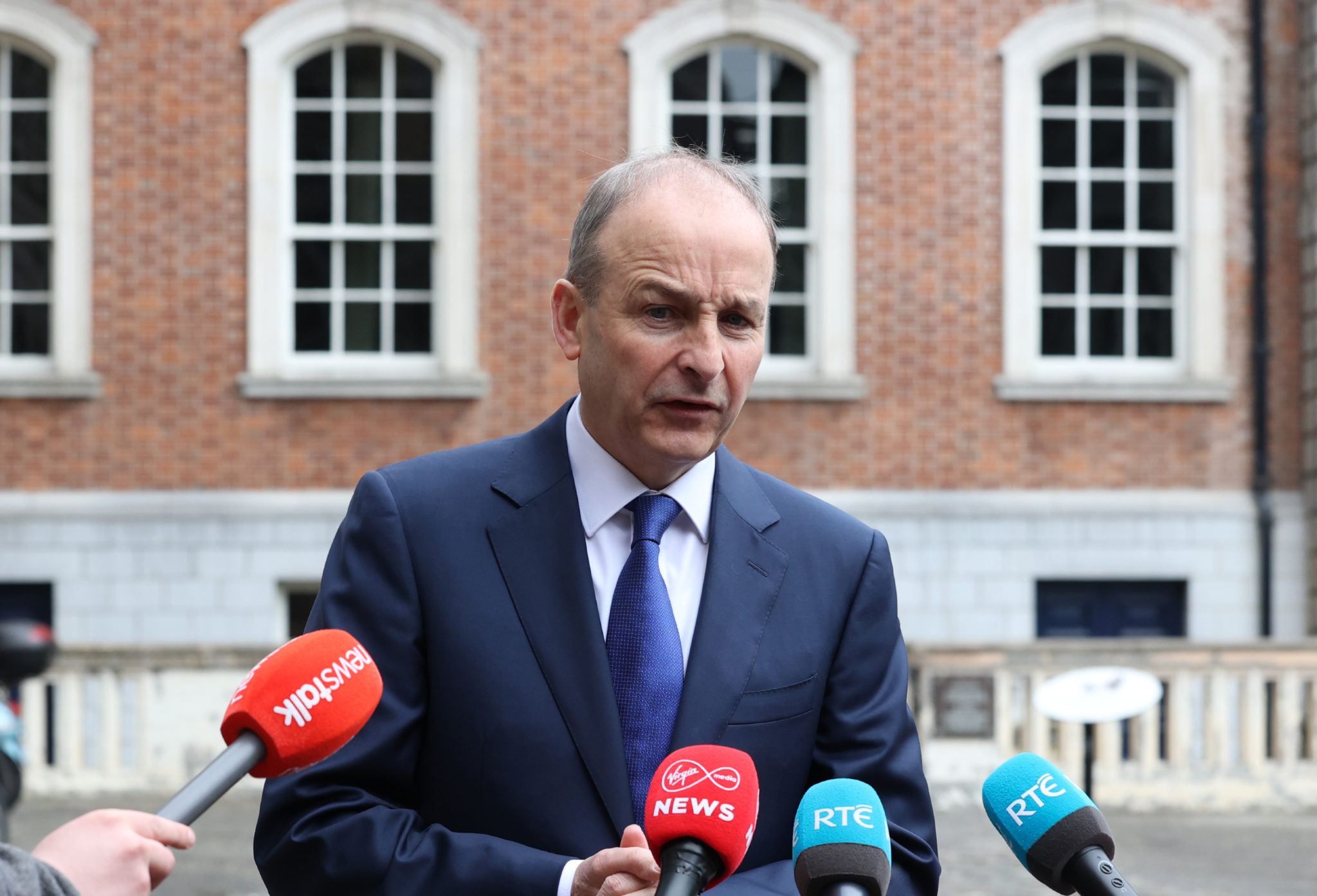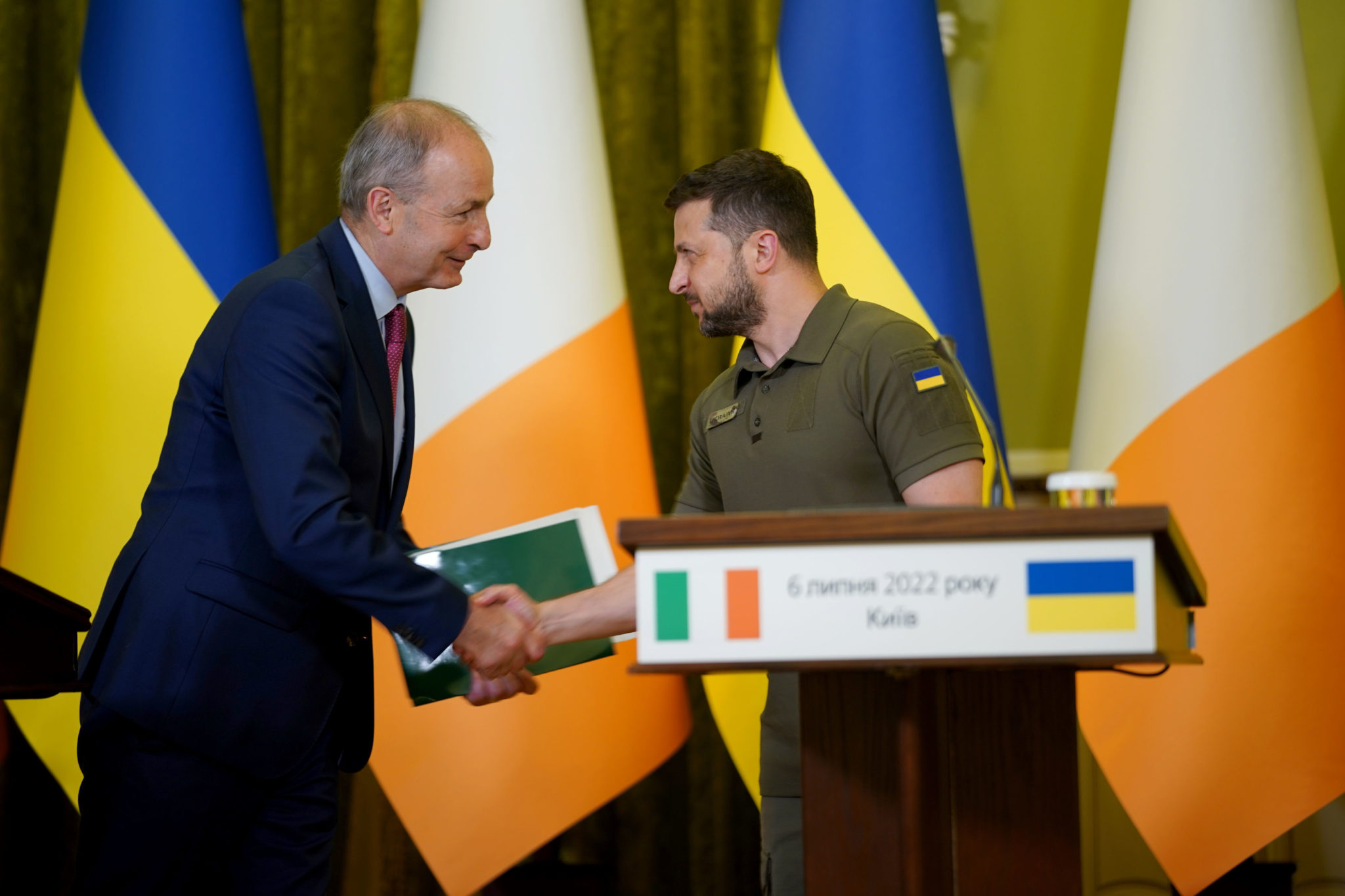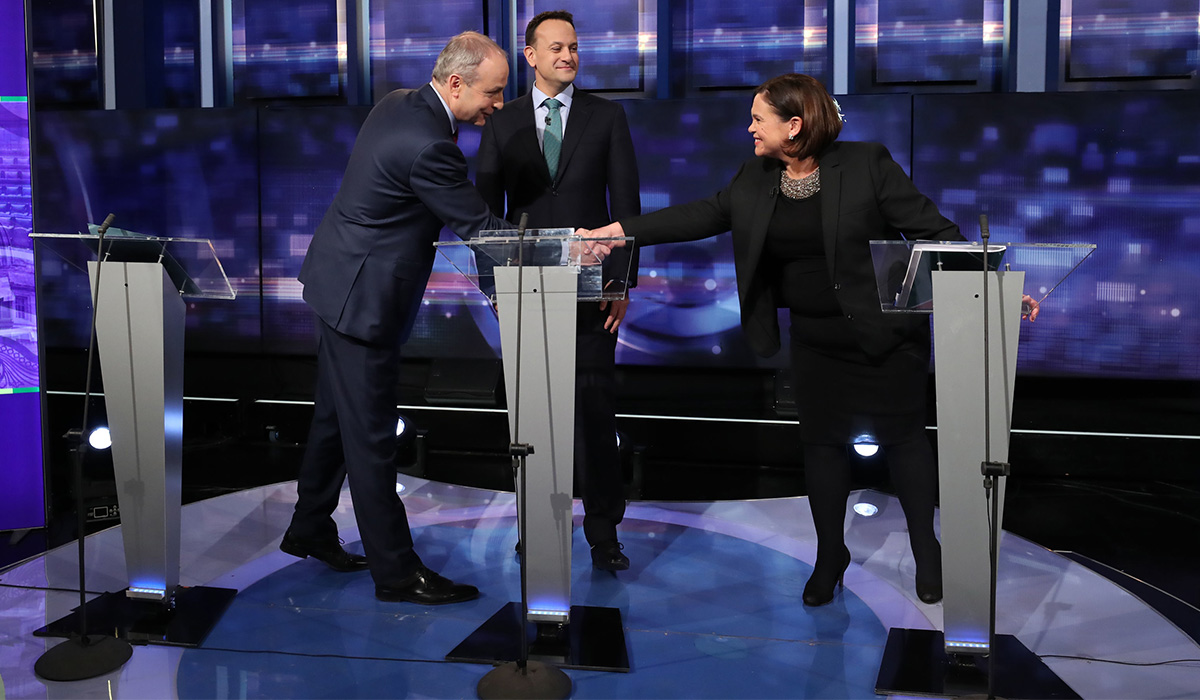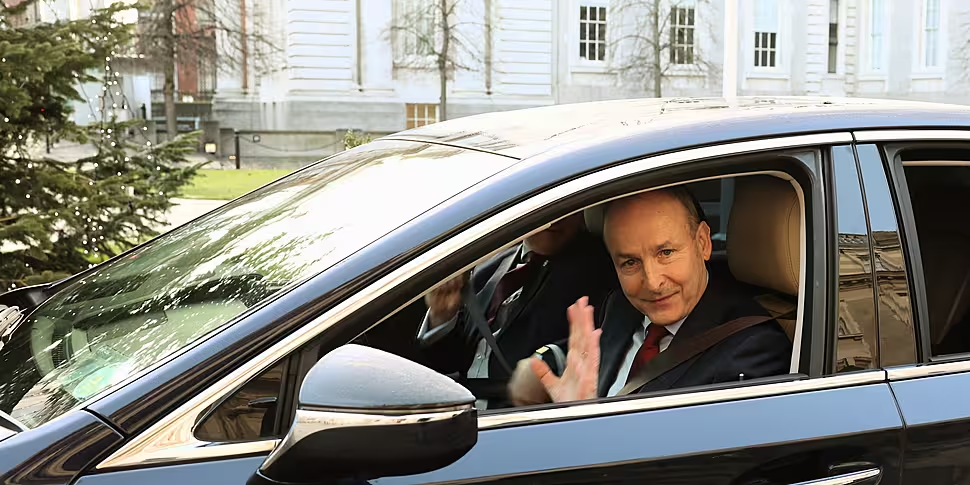Micheál Martin has formally tendered his resignation as An Taoiseach to President Michael D Higgins.
Following a vote in Dáil Éireann later today, President Higgins will appoint Fine Gael's Leo Varadkar for his second term as Taoiseach and a new cabinet will be named.
In a video posted on social media, Mr Martin said the job had been "the honour of a lifetime" and that he was looking forward to the second phase of the coalition.
I’m just on my way to the Áras to meet the President.
It’s been the honour of a lifetime to serve you as Taoiseach.
Looking forward to the second phase of this Government. We’ve done a lot, and we’ve still lots to do. pic.twitter.com/dRkbF2lLbx— Micheál Martin (@MichealMartinTD) December 17, 2022
Mr Martin became Taoiseach in June 2020 - right in the middle of the worst pandemic in the history of the State.
The first lockdown was over - but there was as yet no vaccine for COVID-19 and the first months of Mr Martin’s premiership were a joyless period of illness, death and restrictions.
“No one yet fully understands what the lasting impacts of the pandemic will be,” he told the Dáil in his first speech.
“But we know for sure that these impacts spread deeply in every aspect of our families and communities.”
Beginning in December that year, the first vaccines were injected and in 2021 restrictions were slowly eased.
 The Taoiseach Micheál Martin on his way into Cabinet. Image: Sam Boal/RollingNews
The Taoiseach Micheál Martin on his way into Cabinet. Image: Sam Boal/RollingNewsIn February this year, Mr Martin announced that masks would no longer be required on public transport or in shops.
“The pandemic is not over,” he said.
“There is still the disease out there, but the conversion to hospital and ICU is not significant and the Chief Medical Officer is clear that the public health rationale no longer applies in terms of retaining the regulations around the mandatory wearing of masks.”
Ukraine
The second half of Mr Martin’s time in office was dominated by the war in Ukraine and the economic fallout from the sanctions imposed on Russia.
For Europe, the invasion meant "the most grave security situation it has faced in decades, with repercussions for global security and the world economy".
 Ukrainian President Volodymyr Zelenskyy greets Taoiseach Micheál Martin. Picture by: Niall Carson/PA Wire/RollingNews.ie
Ukrainian President Volodymyr Zelenskyy greets Taoiseach Micheál Martin. Picture by: Niall Carson/PA Wire/RollingNews.ieThe Government supported the EU’s sanctions against the Kremlin and a furious Russian Ambassador denounced Ireland as a leader in “anti-Russian events” in Europe that made his work “frankly difficult”.
The result of the sanctions was an international energy crisis that has seen the cost of living soar across Europe.
Inflation hit 9.6% over the summer and the Government was forced to spend billions in the budget on helping people pay their heating bills.
"We are living in very uncertain, difficult times,” Mr Martin said.
“Government wants to support families and young people, to protect jobs and to invest in public services.
"We want to reduce costs - childcare, education at all levels. We want to reduce the burden of taxation and reduce your energy bills."
"We also want to help and assist those most vulnerable in our society through strong social welfare measures.
“Above all, we came through Covid and our economy emerged stronger. Likewise, we'll emerge from this crisis as well."
Third place to first
Politically, he will be remembered for taking over the leadership of Fianna Fáil when his party’s brand was at its lowest.
In 2010, the State had been forced to apply for a loan from the Troika and the party had plunged to third place in the polls.
Slowly, Mr Martin rebuilt the party into an election winning force once more and in the 2020 General Election, Fianna Fáil won more seats than any other party.
 Martin shakes hands with Sinn Féin President Mary Lou McDonald as Fine Gael leader Leo Varadkar looks on at the final TV leaders' debate at the RTÉ studios in Donnybrook, Dublin. PA Photo.
Martin shakes hands with Sinn Féin President Mary Lou McDonald as Fine Gael leader Leo Varadkar looks on at the final TV leaders' debate at the RTÉ studios in Donnybrook, Dublin. PA Photo.The result was an historic agreement between the two Civil War parties - Fianna Fáil and Fine Gael - and the Green party.
Micheál Martin would become Taoiseach and hand over power to Fine Gael’s Leo Varadkar in December 2022.
It is the first time in the history of the State that the position of Taoiseach has ‘rotated’ between two individuals of different parties without a change of Government.
The Cork TD will now be appointed Tánaiste and is expected to serve as Minister for Foreign Affairs as well.
Main image: Micheál Martin leaving Government Buildings as Taoiseach for the last time. Picture by: Department of the Taoiseach









